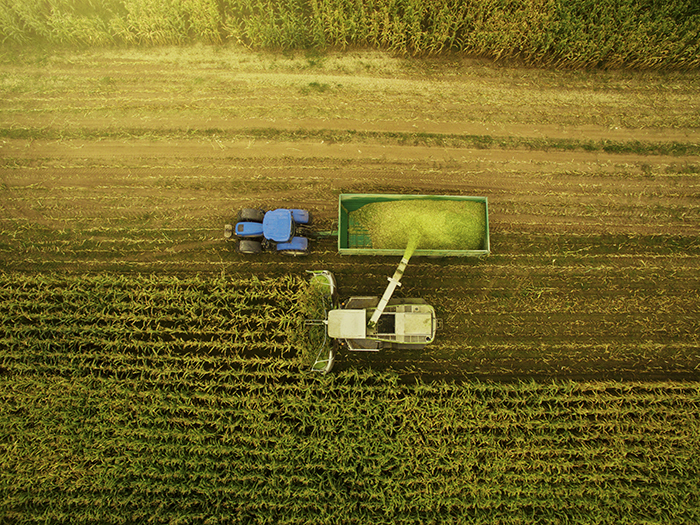Sponsored Content by ProAssurance
Cannabis Products Could Affect Anesthesia Plans, Potentially Opening Up Medical Liability Risk for Providers Who Don’t Assess the Risk

Anesthesia professionals prepare to consider the effects of cannabis use when administering anesthesia or working with a patient on pain management.
Now that the drug is legal for recreational or medicinal use in 38 states and DC, hospital risk management professionals may be scrutinizing how cannabinoids are interacting with drugs commonly used in surgical settings. Regular users of cannabis could have an increased tolerance for anesthesia and analgesia drugs, which could affect anesthesia plans for users undergoing surgeries.
The substance is becoming so commonplace that in January the American Society of Regional Anesthesia and Pain Medicine put out a recommendation that anesthesia professionals screen all patients for cannabis use, so that they can consider what effects it could have on surgeries.
“The ASRA guidelines coming out is a bit of a game changer for the specialty,” said Paul Lefebvre, JD, lead claims professional and Risk Advisor, Preferred Physicians Medical Risk Retention Group (PPM), a division of ProAssurance.
“It’s now the second most commonly used substance after alcohol. As more Americans and our patient population is utilizing it, that certainly needs to be a part of what anesthesia professionals, CRNAs, and AA-Cs, consider when they’re caring for patients.”
If anesthesia professionals fail to screen for cannabis usage, and a patient experiences a poor outcome — say not feeling fully sedated during surgery — it could open the physician and the hospital to medical liability lawsuits. Insureds should partner with their carriers to ensure they’re adopting risk management solutions, so that they remain abreast of this emerging risk.
“We really have to reassess the impact that this product is having on anesthesia plans,” said Bradley E. Byrne Jr., Esq., ProAssurance senior risk management consultant.
How Do Cannabinoids Affect Anesthesia and Pain Management?

Paul Lefebvre, JD, Lead Claims Professional and Risk Advisor, Preferred Physicians Medical Risk Retention Group, a Division of ProAssurance
Cannabis can interact with anesthesia and analgesia drugs in several ways. In some cases, it might have an additive effect, where the two drugs interacting is equal to the sum of the effects of the two drugs acting independently. In other cases, it could have a synergistic effect, where the combined effects are greater than would be if the drugs were acting alone.
For patients who use smokable cannabis products, respiratory depression or airway resistance may be a concern, just as it is with tobacco users. Heavy cannabis users may have an increased tolerance and may need to have their anesthesia plan adjusted to ensure it has the intended effect. Lefebvre knows of a case involving allegations that an anesthesia professional failed to take the patient’s cannabis use into account, and that the patient purportedly moved during surgery as the result of not being adequately sedated, resulting in a complication.
Cannabis use can also impact a patient’s perioperative pain management needs. “If you have a patient who uses pretty heavily, then they may not have adequate pain relief from what an anesthesia professional would typically give them in that setting,” Lefebvre said.
In addition to considering how the drug interacts with anesthesia, physicians and hospital risk managers will want to consider the fact that many cannabinoid products are getting stronger, potentially amplifying the exposure. “The strength of the product itself has increased significantly,” Byrne said.
Even in states where cannabis products with THC remain illegal, hospitals should still conduct screenings in case patients have used CBD, which can also affect anesthesia plans. CBD is a cannabinoid that doesn’t contain THC, the main psychoactive component of the drug.
These products are legal in all states due to the 2018 Farm Bill, which allowed farmers to cultivate and receive subsidies for hemp, a cannabis plant that contains no more than 0.3% THC. So, anesthesia professionals will still want to screen for cannabis usage in states where the drug remains fully illegal.
Screening for Cannabis Use: A Risk Management Best Practice

Bradley E. Byrne Jr., Esq., Senior Risk Management Consultant, ProAssurance
Given cannabis’ proliferation in the U.S., anesthesia professionals should make it a standard practice to screen patients for cannabis usage. They should ask patients if they have used in the past; how often they use; and what strength they use to determine how to proceed with the anesthesia plan before surgery.
“We’re really helping the providers to understand the importance of having these real conversations, getting rid of the stigma and having a real discussion about it to get to the heart of how much a patient might be using and what they’re using,” Byrne said. “I think that that’s an important first step here to prevent potential claims down the road as the usage is, in my opinion, going to continue to increase.”
Some providers may feel that patients may not want to share about their cannabis usage, especially in states where the drug remains illegal. It is important that anesthesia professionals counsel the patient by emphasizing concern about the potential for negative drug interactions.
“It’s about treating it like you would alcohol or any other substance, asking about if they’re taking anything or using anything, explaining to them how that can affect their intraoperative anesthesia plan or postoperative pain control, and empowering the patient to feel comfortable in that environment and that setting to be candid and disclose things,” Lefebvre said.
Once an anesthesia professional determines if a patient has used cannabis, they will be equipped to adjust the anesthesia plan accordingly. In some cases, an anesthesia professionals may recommend delaying surgery if a patient has used cannabis recently.
“If a patient discloses that they had used within the last few hours prior to the procedure, then it might be appropriate to cancel that procedure until there aren’t any concerns about the patient lacking the capacity to consent to the procedure,” Lefebvre said.
How Carriers Can Help Advise Anesthesiologists
As cannabis usage continues to expand in the U.S., anesthesia professionals will undoubtedly want to ensure they’re considering how the drug might interact with sedatives used for surgeries.
As an experienced medical liability carrier, ProAssurance has worked with anesthesia professionals across the country. ProAssurance’s PPM division is the industry’s only anesthesia-specific professional liability carrier, making it uniquely positioned to guide insureds through emerging claims trends.
The company constantly develops educational webinars and other content to help educate its clients on the state of the industry. “We’re well positioned to identify loss trends,” Lefebvre said.
Beyond remaining abreast of emerging exposures, ProAssurance works with attorneys and clinicians to offer its clients risk management resources. If an insured is developing guidelines their anesthesia professionals can use to screen for cannabinoid usage, they can partner with ProAssurance to help ensure they are following industry best practices.
“We’re able to directly educate our insureds on this issue,” Byrne said. “If they’re in the process of putting together a screening protocol for this issue, we can help take a look at it.”
Partnering with a carrier to help develop screening guidelines now can help insureds avoid medical liability insurance claims in the future.
To learn more, visit: https://www.ProAssurance.com.
This article was produced by the R&I Brand Studio, a unit of the advertising department of Risk & Insurance, in collaboration with ProAssurance. The editorial staff of Risk & Insurance had no role in its preparation.









